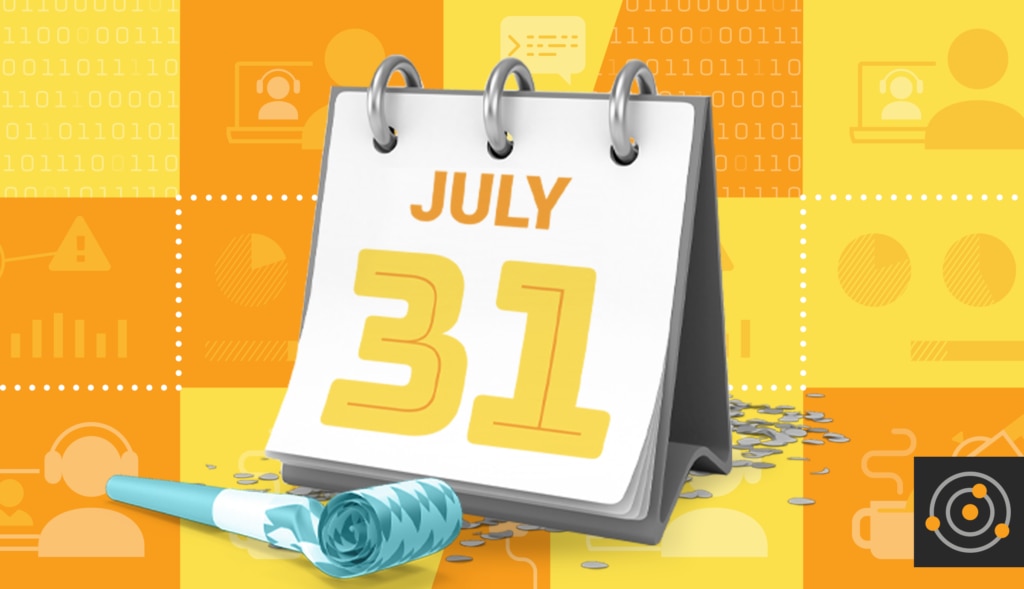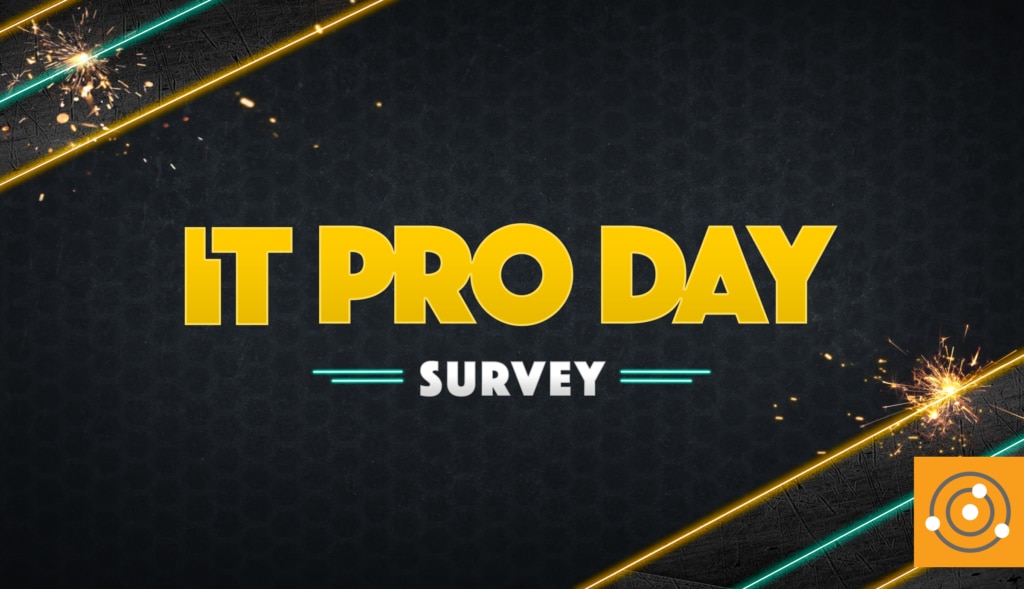I’m not going to even try to pretend SysAdmin Day arrives this year under conditions anyone would call “business as usual.” I’m going to avoid the cliched and empty platitudes of “the new normal,” “unprecedented times,” and “focusing on what matters.” I’m also going to avoid needlessly reminding you how much your company, coworkers, family, and friends rely on you because of your technical knowledge and expertise. Because I’m not here to tell you about
your lived experience.
My fellow Head Geeks and I have spoken before about how our skills in IT are often seen as (and can sometimes actually feel like) a superpower. So, I’d like to honor SysAdmin day this year by exploring ways we user our powers as a force for change, for growth, and for good in the world around us.
I’d like to start by pointing out the
real superpower every hero has, whether it’s Captain America’s “I can do this all day,” Captain Marvel’s “rise up” sequence, Daredevil’s “It ain’t how you hit the mat, it’s how you get up,” or even Captain Underpants’ “Tra-la-laaaaaa!” The one and only superpower any of those pulp comic book characters ever had is their grit, determination, and ability to keep looking for a solution no matter how many times they get knocked down. That’s our superpower too.
As IT folks, we’re pre-disposed to believe most problems—and certainly the ones we face in our daily work—are fundamentally solvable. We don’t walk into every problem knowing how we’re going to fix it. But we walk into every problem believing, one way or the other, we’re going to find the way to fix it.
We also understand—whether through intuition or from hard-won experience—making the wrong change to a system we’re trying to fix is often worse than doing nothing at all.
The challenges facing us today are significantly more complex than a shadowed firewall rule, or a corrupt .DLL, or a slow database query. And not just complex, but significantly more critical too. Lives are at stake, day after day, both for people a world away and close to home. These events can feel hopelessly complex and overwhelming, which can cause us, as seasoned IT practitioners, to choose to disengage for fear of perturbing the system in ways that make everything worse, rather than better.
“None of us is as smart as all of us.”
Kenneth H. Blanchard
I’m here to tell you we—and all of us—are equal to the task. We can use the skills we’ve honed every day and bring them to bear. We can look at the events swirling around us and recognize how everything we know has led us to this moment in time—as an industry, as a team of technology experts, and as individuals too.
But more than inspiration, I believe this year’s
SysAdmin Day post needs to include concrete suggestions for how we can move the needle and provide a tangible opportunity for SysAdmins to hone their skills via our
Products in Practice | SysAdmin Success Series virtual event.
Fight Disinformation
As IT professionals and tech enthusiasts, we have a duty to the data. Whether at the office or in our homes, we should implement methods and tools to reduce the visibility and impact of bots, spam, and demonstrably false narratives. Part of the reason is because we know how important it is to always work with good (meaning accurate, verified) information. But just as importantly, those sources of false data are often vectors for viruses, malware, ransomware, and other security risks.
It also means checking the data quality of the wetware—meaning our own brains. Are we operating under undetected biases? Are we allowing false narratives to influence our choice or interactions? You wouldn’t dream of running a virus scan on a server once ever and never doing it again. Likewise, reviewing our underlying assumptions is an ongoing activity.
Recognize Differences, Remove Biases, Amplify Voices
When was the last time you tried to plug an ethernet cable into a USB port? Run an .MSI file on an AIX system? Set up SolarWinds AppOptics tracing for a DOS batch file?* The reason you’re (hopefully) thinking “never” right now is because those things are inherently different. Even when it comes to more nuanced differences like un-normalized data sets, as tech professionals we’re remarkably sensitized to the impact mismatches can have on the operation of the overall system.
Furthermore, as I pointed out in last year’s
THWACKcamp keynote, we IT folks love our languages—which includes anything with a vocabulary and syntax, from Klingon to Perl to music to calculus.
These two fundamental aspects of our world view allow us to help identify when there are differences elsewhere—in our teams, companies, or communities—and go the extra step to understand and bridge the distance between what we say and how it’s heard; what we intend and what we do, and so on. This applies in everything from the way we create and maintain documentation to how we build application interfaces to the way we assemble teams.
But more importantly, we have a unique ability and opportunity to build systems that avoid errors caused by unimportant differences.
To put it in tech terms, I’d like to believe any of us would question a coworker who refused to replace a 2-meter USB C cable with a 3-meter one. Or on insisted they needed to install MS Word 2003 to open a .doc file.
Example: We can build (or modify) our personnel systems to mask race, gender, age, and disability since study after study have shown how those factors have nothing to do with the ability to a job; and humans are remarkably bad at avoiding internal biases.
SysAdmin Day 2020 is the day when the world recognizes the importance of and achievements by IT professionals around the world. It’s also the perfect day for experienced IT professionals to pay it forward and raise up the voices of folks in our teams and social circles who—due to multiple factors—don’t have the audience, attention, or perception of credibility we enjoy.
*OK, I might have tried that. Call it wishful thinking. Hey,
UX team, I’m available for a call if you want to brainstorm!
Build an Army
“A 10x Engineer is not an engineer who writes 10x more code than other engineers. A real 10x Engineer is an engineer who brings ten other engineers up to their level.”
Yechiel Kalmenson
This takes me to my last concrete step in this post: expend your energy empowering and enabling those around you. Every network engineer knows a single source can’t get the signal everywhere it needs to go. You need to set up repeaters and amplifiers to get data out to the farthest end of the network.
Train. Explain. It need not take hours of your day. A few minutes to check in with those in your circles—whether in the office or on social channels—and offer answers, opinions, or just support can mean everything to someone at the start of their career (or the start of a project, or the start of their day). It’s impossible to understate the benefit of sharing what you know. From having some who can cover for you in a pinch to the rush of seeing the enthusiasm you feel for a technology reflected in someone else’s eyes, people who take up the task of teaching and mentoring consistently sing its praises.
But it goes beyond just training others the techniques you’ve picked up. More than understanding
what to do, true teachers impart
why those tasks and technologies are important. Their history. The pros and cons. Because if you’ve been at this thing called “IT” for any length of time, you already understand no technology is value neutral. When we implement a system, collect or share data, open or block access, we’re making a choice reflecting an ethical or even moral point of view.
Part of your job on this SysAdmin Day is to ensure the people you teach appreciate the impact the skills you’ve imparted can have—good and bad—and have a compass guide them when you’re not there to offer your insights.
What Next?
I’m going to come back to one of the first thoughts I offered—how the events outside of our office window can feel daunting and even overwhelming. Those feelings are not only natural, they’re completely justified. We’re all feeling it right now. But hopefully I’ve offered you a way to frame those events in relation to our particular (and particularly technical) world view. Hopefully this provides you with a way forward. Hopefully, on this
SysAdmin Day, it offers you hope.
If it still feels like too much (again, a totally understandable feeling), I’ll leave you with a piece of wisdom from sages who were dealing—and helping those around them to deal with—questions about how to move forward after world-shattering events.
“It is not your responsibility to finish the work of perfecting the world, but you are not free to desist from it either.”
Rabbi Tarfon, Pirke Avot 2:21




